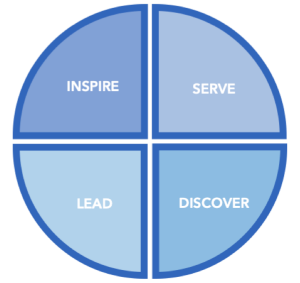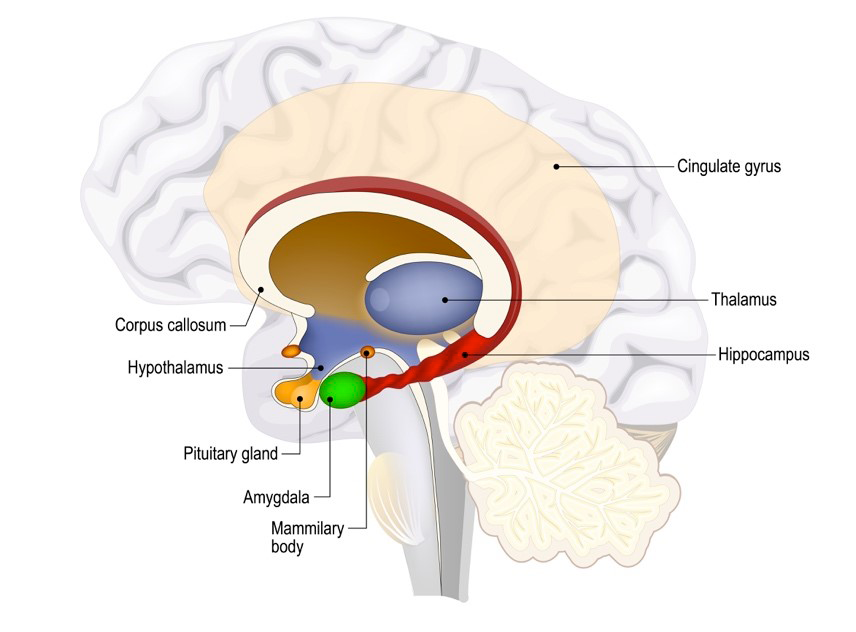
What is the secret that really makes the DIFFERENCE in great leadership training? How can solutions like immersive practice, emotional feedback, smart debrief and augmented replay permanently upskill your first-time managers?
I’m sure you know the meaning of immersion, trial & error, powerful feedback, actionable metrics and smart coaching.
However, it still makes sense for me to address them in the most appropriate way because they are the travel companions of your colleagues who are already getting the results they worked for.
1. Immersive, real-time practice
By the very admission of the best trainers in the world, immersive, real-time practice is the most important part of the equation.
Did you know that our brain does not distinguish between reality and fiction? And that neuroscience confirms that immersive, real-time practice makes you change your habits and, as a result, your daily behaviors?
Take a look at this video to grasp how an interactive digital role play works:
Through the use of artificial intelligence (A.I.), the interaction in SkillGym is particularly immersive and authentic because the characters are “alive” and react in a natural way based on the progress of the conversation, just as in reality.
This is the trademark of the SkillGym method.
SkillGym simulates real leadership conversations by placing the trainee at the center of a real (but simulated) conversation, in which the other party has a well-profiled attitude on specific psychological types.
The conversation’s objectives are challenging, and the counterpart’s implicit needs are not easy to bring out.
Each of the trainee’s choices involves a twist in the behavior of the character who gradually gets to know the trainee and modulates his answers according to his personality and the progress of the conversation.
In less than 20 minutes, natural behaviors emerge that can be addressed during training to learn how to manage complexity before facing it in real life.
Our typical customers obtain surprising results: They increase the confidence of their first-time managers by at least +25% simply by setting the pace of practicing at as low as 40 minutes / week for 6 months.
You will soon realize that with the help of the ‘Scheduling Butler,’ this level of engagement fits perfectly with any first-time manager’s schedule.
It also increases self-awareness, which is very important since an average first-time manager has a self-awareness index as low as 45%.
It means that they don’t perceive the impact of their actions as it really is one out of two times.
I can confirm this figure by looking at the enormous amount of data we have in “The Gym of First-Time Managers” program.
I can also show that after just eight weeks of consistent training, self-awareness typically increases by + 15%.
Even the customers who train their salesforce with our SkillGym programs, which are specifically dedicated to sales upskilling, get fantastic performance, measured directly on sales increase.
For example, an important insurance company trained their inside sales staff using SkillGym and obtained an astonishing +18% change in individual sales performance for those who consistently followed the program over six months.
And here’s what the Chief Learning Officer of an important bank told me about SkillGym, after having trained 245 first-time managers on our program:
“The Gym of First-Time Managers literally exceeded my expectations. I see a huge difference between this group of First-Time Managers and those we trained last year, before introducing SkillGym. They are way more confident in engaging with critical conversations. And gosh, this is the core of their job.”
2. The Emotional Feedback
In life, the privilege we don’t have is knowing what others think of us after the conversation has ended. How nice would it be to eavesdrop?
To find out, in a safe place, where we could have done better and why it didn’t go as we thought.
SkillGym offers us this privilege.
For 2 minutes, immediately after the conversation and thanks to the A.I. Emotional Feedback, our managers can hear themselves being talked about.
Not just in general terms, but with precise references to the conversation that has just ended.
Take a look at this video to get an idea of how an emotional digital feedback session works:
This allows trainees understand exactly what worked and what didn’t in their approach.
Nobody in real life has the courage to give us such raw, unfiltered feedback. Here’s how A.I. helps us improve and develops real experience.
Here at SkillGym, we calculated that with emotional feedback, people accelerated the speed with which virtuous behaviors became automatic by 50%.
Having such an effective tool as an emotional activator with the caliber of the Emotional Feedback is in itself the secret weapon of any leadership development training program.
It is something that cannot be replicated with other techniques, especially on the scale that is required to activate the automatic behaviors needed to generate experience-based performance.
As you may know, emotional feedback immediately stimulates the right side of our brain.
But what you may not know is that this specific type of feedback activates the receptors that accelerate the excitement of our limbic system.
The limbic system is known as the emotional brain and contains the amygdala, which is located inside the frontal temporal lobe. This means that it is part of the so-called deep brain, the one where basic emotions or survival instincts stand out.
Its main function is to integrate emotions with the corresponding response models on a physiological and behavioral level?
Its connections not only produce an emotional reality, but following its close bond with the frontal lobe, it allows the inhibition of behaviors, participating in the well-known emotional seizure or “Amiygdala Hijack.”
This function is absolutely fundamental for unconscious set-up of new and efficient daily behaviors.
Neuroscience has widely demonstrated how this system is involved not only with emotions, but that it is also of vital importance in motivation, in the development of learning and in the consolidation of memory.
More on this amazing scientific subject below!
Thanks to A.I., “The Gym of First-Time Managers” automatically generates, in real-time, the precise emotional feedback that our minds need to transform learning into experience.
3. The Smart Debrief
Imagine being able to follow each of your first-time managers in every conversation they make.
Each time, you could give them the support they need in real time to:
- Measure the effectiveness of their behavior
- Compare it with a significant benchmark
- Understand how much self-awareness they had and what they under or overestimated
- Understand in which passages they performed poorly
- Formulate powerful questions about those steps to help them challenge themselves
- Suggest how to continue training effectively and above all efficiently
This is something that you are certainly very good at when you focus on a single conversation from a single manager at a time.
Think about what results you would get if you could do it continuously on all the conversations held by first-time managers for the first six months of their new assignment.
Now think about the fact that such an effort would unfortunately be impossible to sustain with the traditional one-to-one coaching approach. Even if you had enough coaches to assign one to each manager, it would still not be possible to provide this level of service to each of their conversations.
All this is done automatically, thanks to A.I. by “The Gym of First-Time Managers” at the end of each simulated conversation.
This happens thanks to the Smart Debrief module, which is an integral part of the training platform.
Take a look at this video to get an idea of how a digital smart debrief works:
In this way, every manager who practices on our conversations is followed step by step along their journey while receiving useful advice, like what you would give (if you could follow each of your managers and if you could measure their behavior objectively and precisely).
If you wonder why this works, think about how you wanted to be supported when it was your first management assignment.
Did you know that a recent Blanchard’s research study shows that 59% of first-time managers claim that the support they received for the role was insufficient?
It is no coincidence that 49% of managers felt unprepared to switch into the role on their first assignment, and after 6 months, 63% still felt ineffective!
By contrast, the surveys of customers who use our Gym show that: 86% of trainees feel very confident with the most important types of conversations they need after just 12 weeks of practicing (don’t forget that conversations take 80% of their time in the new role!).
This is why the Smart Debrief is an essential tool of our Gym: because it allows you to introduce the value that “human factor” can provide, while maintaining the automation that only A.I. can give you.
It means less effort on your part, but with one-to-one human-like quality delivered to your trainees!
4. The Augmented Replay
Can you imagine if you could review the conversations you had in real life?
From a third and neutral point of view.
And what if you could have the magic of augmented reality helping you to understand the meaning that the other party gave to what you wanted to say, and if you could also grasp their unbiased reactions?
And think if you could also read the hidden meaning of their body language.
And also…what if you could have a comment for all your behaviors and a sharp recommendation on how to improve on each of them?
Take a look at this video to get an idea of how an Augmented Replay works:
Let me tell you what some first-time managers from a major insurance company told me after reviewing all the above through our A.I. Driven Augmented Replay:
“I can’t believe my eyes. It’s like a sort of body-scanner if you know what I mean. It knows me better than I do.” (Mark J., Insurance Area Manager)
“Reviewing the conversation was of great help. I could see some blind spots I would never think about. It’s certainly an eye opener for me.” (Amy R., Team Manager)
“I shared my conversation with my Coach and she could review the critical steps with me during one of our sessions. It was a great way to provide her an example of a critical situation I was scared of.” (Annie B., Field Manager)
Warning: the benefit of reviewing a conversation is not something that is important just for First-Time Managers. It’s an essential exercise for middle managers as well.
We are talking about being able to review our behaviors in a protected environment, in which to analyze each individual sentence of our dialogue, understand its impact and receive a recommendation.
Experience has taught me that even many seasoned in-role managers are happy to be able to refine their approach in such a comfortable and safe way.
The need for practicing conversations
First-Time Managers need to practice conversations even more than in-role managers do. Not only are conversations the way they will spend 80% of their time once in-role, but above all, they will have to learn to guide, inspire, support and listen to others.
There are basically four areas in which they will need to demonstrate excellent capabilities of conversation:

And they will soon find out (normally the hard way) that their new reports expect the same listening, feedback and support capabilities from them as they expected from their leaders when they were individual contributors.
A First-Time Manager is estimated to spend over 800 hours in the first 6 months just having conversations.
And it is estimated that 90% of these conversations belong to the above four areas and specifically to just eight types within those area:
- Align/Update
- Assign objectives
- Coach/Mentor
- Give performance feedback
- Delegate
- Motivate
- Give recognition
- Support on priority setting
“The Gym of First-Time Managers” focuses exactly on these conversations.
In a recent survey conducted with one of our clients in the field of pharmaceuticals, it turned out that after 6 months from the start of training, 85% of First-Time Managers recognized that these conversations matched those in which they spend most of their time.
- 75% said they had overcome the fear of doing them thanks to practice
- 89% said they understood the meaning of their role much better by practicing conversations than “learning about” in preparation courses
Why Immersive Practice is really responsible for change?
The basic courses, the classes, knowledge transfer and peer-to-peer exchanges are useful, and they must be absolutely delivered. I am not questioning their effectiveness.
However, these approaches deliver only unexpressed potential, until they are integrated with actionable practice.
n the other hand, how do you think a sports champion can compete only by learning theory or exchanging opinions with those who have already done it?
And before they invented the concept of ‘Leadership Academy’, how do you think a manager was taught to be such?
With the example, and humble practice. Practice!
Instead, when the Leadership Academies were born, they preferred to replace practice with a teaching method that works well in school, but is not suitable for generating the performance expected in the world of business.
Traditional leadership training methods dilute people’s potential instead of concentrating it.
They delegate responsibility for shaping their behavior to people themselves. The only way people have to gain experience is by trial & error in real life, without a safety net.
This makes them vulnerable, inefficient and ineffective.
Immersive Practices CRACKS the process of learning, it eliminates the evaporation of knowledge, turning it into automatic and consolidated behaviors in our unconscious mind—without even realizing that it’s happening.
But how is all this possible?
Neuroscience explains it well.
Recent studies have widely demonstrated how emotional learning based on the repetition of experiential paths affects the parts of our brain that stimulate instinctive and automatic reactions, making us act through impulse of the amygdala.

The reactions generated while stimulating the amygdala (also called “prehistoric brain”) are faster compared to the ones generated when we use the parts of the brain that act rationally.
Moreover, the use of emotions in training is proven to improve retention and recall of what has been learned.
Unfortunately, however, practice alone in daily life is not efficient.
IT IS SLOW because it is made in an unprotected environment where experience accelerators are missing: Emotional Feedback, Smart Debrief and Augmented Reality.
Imagine what it means to accelerate up to 10X the speed at which we transform experience into new automatic behaviors.
Your First-Time Managers would become great performers in a much shorter time, with a very strong self-awareness of their potential and their limits and a very high level of confidence with which to face the obstacles that will accompany them throughout their career.
I know right now this might look like the stuff of science fiction stuff.
After all, it can’t be easy to change people that fast with immersive practice-based learning, otherwise everyone would be able to. In fact, it’s true: it’s not easy…if you don’t have the best tools that allow you to do it.
“The Gym of First-Time Managers” has already empowered hundreds of thousands managers at the beginning of their career all around the world. It has transformed these people into prepared, confident and lucid managers, leading them to outperform up to 5 times those of their competitors.
Thanks to “The Gym of First-Time Managers,” the learning officers of these companies have been able to evolve the way they think about developing managerial skills by placing CONVERSATIONS and PRACTICE at the center of the transformation of new leaders.
Was that easy? Obviously not. But it was worth it.
What’s next
If you are researching for the Digital Role Play solution that suits your needs, please take a look around our website, which includes articles, pre-recorded webinars and much more inspiration. We would also welcome the chance to continue this conversation with you, all you need to do is book a free call with us.
Enjoy the rest of your day.

